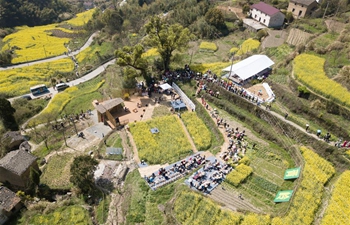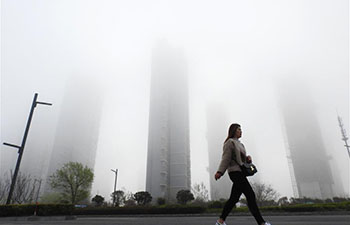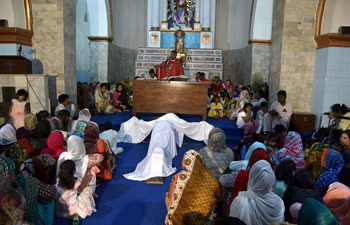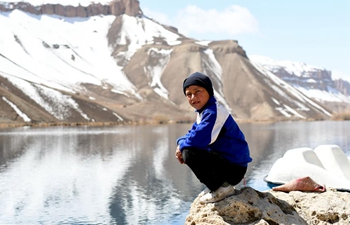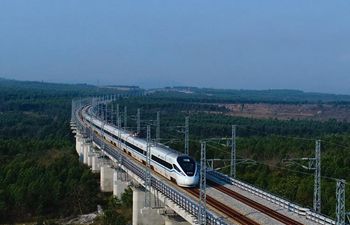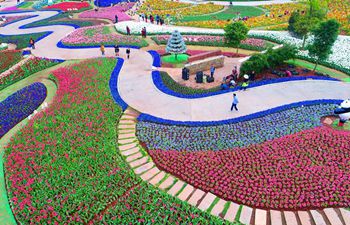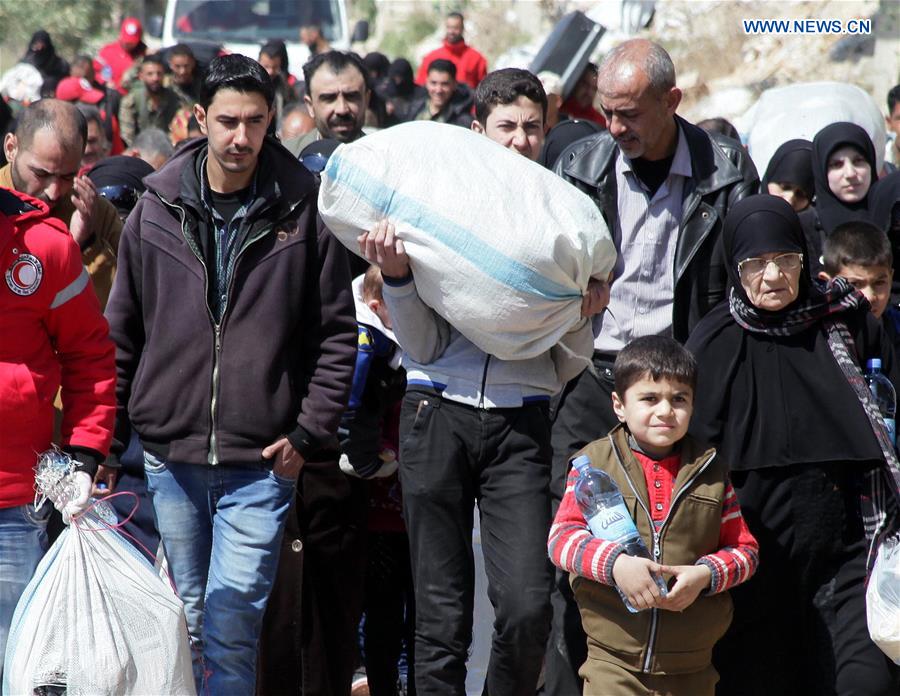
Syrians evacuate from rebel-held areas in Eastern Ghouta, countryside of the capital Damascus, March 31, 2018. The evacuation of the rebels and their families as well as other civilians from Syria's Eastern Ghouta has seen so far the departure of 188,000 people in March. (Xinhua/Ammar Safarjalani)
DAMASCUS, March 31 (Xinhua) -- After seven years of war, the Syrian army is succeeding to wrest control almost over the Eastern Ghouta region, which was the last dagger pointed to the eastern rim of Damascus.
Starting late last month with massive military reinforcements, the Syrian army has started a military tactic to eliminate the rebel presence in Eastern Ghouta, taking specific areas at first that enabled it to split that region into several areas, which pushed an array of rebel groups to give in and accept to evacuate their positions for the Syrian army.
Last Saturday, the evacuation of the rebels in Eastern Ghouta started after they have become convinced that the military campaign of the Syrian army wasn't going to stop until fully recapturing Eastern Ghouta and also after negotiations mediated by Russia.
This Saturday, the last batch of rebels and their families evacuated their last stronghold in central towns in Eastern Ghouta, after a week busy with the evacuation of thousands of rebels and their families leaving to rebel-held areas in the northwestern province of Idlib.
Over 40,000 rebels and their families have evacuated areas in Eastern Ghouta so far toward Idlib, while 150,000 civilians chose to evacuate to government-controlled areas near Damascus.
The news of the near liberation of the key towns of Jobar, Zamalka, Arbeen and Ayn Tarma started emerging on Saturday morning, as the last batch of rebels was preparing to leave.
Later in the evening, the Syrian army released the statement of victory in Eastern Ghouta, saying the army units captured 31 towns and areas in Eastern Ghouta, while still in a fight with the rebels in Douma district, the last rebel stronghold north of Eastern Ghouta.
Hundreds of rebels have been killed and their command centers destroyed during the offensive which began late last month, according to the military statement carried by state news agency SANA.
It added that the victory in Eastern Ghouta secured the road between Damascus and other Syrian areas in the north and also to the eastern areas in Syria reaching the Iraqi border.
Retrieving those areas also end the suffering of the Damascus' people as a result of the mortar attacks launched by the rebels from Eastern Ghouta.
The statement also said the victory in that area deals a blow to the "terrorist projects" targeting Syria.
Meanwhile, the army pledged to continue its battles against terrorism in all of Syria.
The four towns of Jobar, Zamalka, Arbeen and Ayn Tarma were considered to be the most dangerous to the capital due to their proximity to eastern Damascus neighborhoods. The rebels in those areas have repeatedly attempted to infiltrate the capital from those areas and have launched countless mortar shells on the neighborhoods of Damascus.
After the four areas, only the district of Douma in the northern part of Eastern Ghouta remains under the Islam Army control amid ongoing negotiations mediated by the Russians for achieving similar agreement in Douma.
The pan-Arab al-Mayadeen TV said the agreement of Douma could be included in the next hours.
Eastern Ghouta, a 105-square-km agricultural region consisting of several towns and farmlands, poses the last threat to the capital due to its proximity to government-controlled neighborhoods east of Damascus and ongoing mortar attacks that target residential areas in the capital, pushing people over the edge.
Four major rebel groups have been in control of Eastern Ghouta since 2012, namely the Islam Army, Failaq al-Rahman, Ahrar al-Sham, and the Levant Liberation Committee, known as the al-Qaida-linked Nusra Front.





